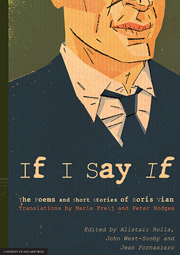Boris Vian: A Life in Paradox
Published online by Cambridge University Press: 05 September 2014
Summary
Introducing Boris Vian to an Anglo-Saxon audience presents something of a challenge, principally because he is so well known in his native France that it is difficult to imagine how he could have escaped the attention of the rest of the world. And yet, Vian remains almost unknown outside academic circles in countries such as Great Britain and the United States, where so many other prominent figures of the French cultural and intellectual landscape of the 1940s and 1950s — most of whom Vian frequented and counted as his friends — remain a subject of enduring fascination. Whereas other figures of that heady period such as Georges Perec, Albert Camus, Jean-Paul Sartre and Simone de Beauvoir have long been granted a place in the pantheon of world literature, Vian remains obstinately in the shadows. In terms of public impact, then, we might say that Boris Vian is one of France's most surprising export failures.
Why surprising? Because Vian's involvement in the Parisian intellectual life of the post-war period and the eclectic nature of his artistic pursuits — which ranged from hard-boiled crime writing to science fiction and jazz — give him the kind of profile that would seem tailor-made to appeal to a wider public, and particularly to the English-speaking world. It is nevertheless the case that his life and work have not yet found that broader resonance.
- Type
- Chapter
- Information
- If I Say IfThe Poems and Short Stories of Boris Vian, pp. 1 - 12Publisher: The University of Adelaide PressPrint publication year: 2014

